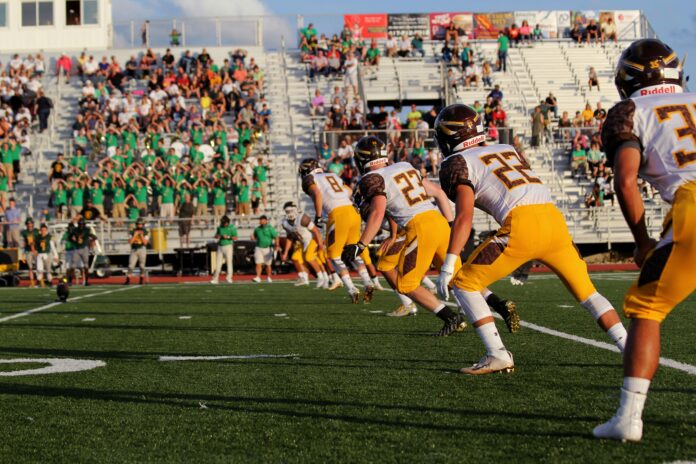Introduction
Pour ceux qui envisagent de devenir agent de football licencié par la FIFA, il a été récemment annoncé que le 4ème examen d’agent de football de la FIFA depuis son retour en 2023 est prévu pour le 20 novembre 2024. Encore une fois, nous prévoyons d’être le plus grand soutien possible pour vous fournir des conseils de préparation tout au long de la période précédant l’examen et au-delà. Ce blog résume ce que nous savons sur l’examen de novembre et présente également à ceux qui ne sont peut-être pas encore familiers notre cours en ligne très réussi “Comment réussir l’examen d’agent de football de la FIFA”.
Dates clés et processus de candidature
La période de candidature pour l’examen d’agent de football de la FIFA s’ouvre le 19 août 2024 et restera ouverte jusqu’au 4 octobre 2024. Si vous souhaitez postuler à cet examen, vous devez visiter le portail officiel des agents de la FIFA. Avant de commencer votre candidature, il est essentiel de vous assurer que vous remplissez tous les critères d’éligibilité définis par la FIFA. Ces critères incluent généralement un casier judiciaire vierge, une expérience pertinente dans l’industrie du football, et d’autres qualifications spécifiques que la FIFA pourrait exiger.
Lors de la candidature, vous devez remplir le formulaire avec des informations précises et à jour. De plus, vous devez soumettre tous les documents justificatifs nécessaires pour étayer vos qualifications. N’oubliez pas de payer les frais de candidature requis dès qu’ils apparaissent sur le portail des agents, car cela est nécessaire pour le traitement de votre candidature et votre admission à l’examen.
Il est crucial de vérifier deux fois que vous remplissez toutes les conditions d’éligibilité énoncées dans les règlements de la FIFA pour les agents de football afin d’éviter toute complication de dernière minute qui pourrait compromettre votre candidature et votre capacité à passer l’examen. Si vous avez des questions ou avez besoin d’assistance pendant le processus de candidature, n’hésitez pas à nous contacter. Nous sommes là pour vous aider à naviguer dans le processus en douceur et pour vous assurer que vous avez les meilleures chances de succès.
L’examen lui-même
Nous ne savons toujours pas quelle sera la décision de la Cour de justice européenne concernant les éléments actuellement suspendus des règlements de la FIFA pour les agents de football, y compris les plafonds de commissions et les représentations multiples. Cependant, le contenu de l’examen portera toujours sur les documents d’étude de la FIFA, et les exigences de réussite et le format devraient rester les mêmes.
L’examen de 2024 pour les agents de football de la FIFA suivra généralement les mêmes procédures que l’examen de l’année dernière. L’examen ne sera disponible que dans trois langues : l’anglais, l’espagnol et le français. Les candidats doivent passer l’examen en personne dans des lieux désignés sous des « conditions d’examen » strictes, et on espère qu’en 2024, cela sera mieux organisé, évitant ainsi certains problèmes logistiques rencontrés l’année dernière.
Il est essentiel que les candidats apportent leur propre ordinateur portable et s’assurent d’une connexion internet stable pour l’examen numérique. Toute interruption de l’internet pendant l’examen pourrait invalider la tentative, nécessitant une nouvelle candidature à une date ultérieure. Les associations nationales fourniront des lieux où les candidats pourront passer l’examen en personne, garantissant un environnement d’évaluation réglementé et approprié. À leur arrivée, les candidats doivent présenter une pièce d’identité personnelle et une preuve de paiement des frais d’examen. Seuls l’ordinateur portable du candidat et un appareil pour créer un point d’accès internet sont autorisés dans la salle d’examen. Les autres articles, tels que les écouteurs, les appareils ayant accès à internet, et les téléphones portables, doivent être éteints et conservés à l’écart pendant l’examen. Les notes personnelles et les documents sont autorisés en raison de la nature « livre ouvert » de l’examen, mais ils doivent être physiques, car l’utilisation de logiciels informatiques comme Google est interdite.
La FIFA s’engage à assurer la transparence et le respect des règles pendant l’examen. Les règles standard de l’examen s’appliquent, y compris l’interdiction de communiquer entre candidats, de tenter de copier des réponses ou de provoquer des perturbations. Quitter l’examen sans consentement, enregistrer l’examen, partager les questions à l’extérieur, ou usurper l’identité d’autres candidats est strictement interdit et sera surveillé par les administrateurs et surveillants.
Conditions de réussite
Une fois installés et acceptés, les candidats accèderont à l’examen en ligne et disposeront d’un temps imparti pour le compléter. L’examen se compose de 20 questions à choix multiple, avec une limite de temps de 60 minutes. Ces questions impliquent des scénarios et des études de cas, nécessitant des candidats qu’ils sélectionnent la meilleure réponse. Malgré la nature « livre ouvert », une réflexion rapide, une connaissance préalable, et de solides compétences en navigation sont essentielles en raison du temps limité disponible. Le score de réussite reste fixé à 75 %, soit 15 réponses correctes sur 20. La FIFA vise à maintenir un examen exigeant, similaire aux années précédentes avant la déréglementation en 2015, et comme cela a été observé en 2023.
Les candidats peuvent s’attendre à recevoir leurs résultats d’examen dans un délai de sept jours ouvrables. Ceux qui échouent seront informés des possibilités de repasser l’examen en novembre ou auront la possibilité de revoir leur tentative précédente. Le résultat ne peut être contesté sauf en cas de circonstances exceptionnelles ayant affecté de nombreux candidats, comme cela a été observé en Angleterre en septembre 2023. Pour les candidats qui réussissent, des instructions pour finaliser la procédure de licence seront fournies.
Notre cours de préparation “Comment réussir l’examen d’agent de football de la FIFA”
En vue de l’examen à venir, nous sommes ravis d’annoncer le retour de notre cours préparatoire renommé : « Comment réussir l’examen d’agent de football de la FIFA ». Ce cours est méticuleusement conçu pour vous fournir tous les outils et les connaissances nécessaires pour réussir.
Nos trois cohortes de participants en 2023 et 2024 ont atteint un taux de réussite impressionnant de 88 % aux examens d’agent de la FIFA tenus en avril et septembre 2023, et en mai 2024. Ce taux de réussite souligne l’efficacité de notre cours et le dévouement de nos instructeurs, Daniel Geey et Dr Erkut Sogut LL.M.
Le cours comprend des conseils complets, faciles à suivre, et approfondis sur tous les règlements pertinents de la FIFA. Il couvre les nouveaux règlements pour les agents et la manière dont ils seront présentés dans l’examen, l’élaboration d’une stratégie réussie pour l’examen, et une pratique intensive avec des examens antérieurs et des simulations. Vous obtiendrez une compréhension détaillée des six principaux documents de la FIFA et des questions spécifiques possibles, telles que les règles sur les transferts, les compensations de formation, le travail avec les mineurs, le système de licence des agents, les plafonds de commissions, les conflits d’intérêts, et plus encore.
Le cours est dispensé en anglais dans un style de conférence interactif, garantissant que tous les aspects du nouvel examen d’agent de la FIFA sont couverts. Les participants recevront également des supports d’examen pour les aider dans leur préparation.
Rencontrez les tuteurs
Dr Erkut Sogut LL.M. a été l’agent de talents de premier plan tels que Mesut Ozil, Kieran Gibbs et Kerem Akturkoglu. Il a battu le record de contrat de la Premier League anglaise en 2018 et le record turc en 2021. En tant que fondateur de la Sports Agent Academy, il forme la prochaine génération d’agents et est un conférencier de renommée mondiale, éducateur, blogueur et auteur. Vous pouvez consulter son travail sur ce site.
Daniel Geey, associé chez Sheridans Sports Law, travaille sur les transferts, les reprises de clubs, les contrats de joueurs et les accords de parrainage. Ses clients incluent des clubs et des joueurs de Premier League et de Ligue des Champions. Il a écrit pour The Times et Daily Telegraph et est l’auteur de « Done Deal: An Insider’s Guide to Football Contracts, Multi-Million Pound Transfers, and Premier League Big Business ». Vous trouverez plus d’informations sur son travail sur www.danielgeey.com.
Ne manquez pas cette opportunité de vous préparer à fond pour l’examen d’agent de la FIFA. Inscrivez-vous à notre cours préparatoire et rejoignez ceux qui ont réussi à devenir des agents FIFA. Comme toujours, n’hésitez pas à nous contacter si vous avez des questions, nous sommes là pour vous aider à réussir tout au long du processus de préparation et après l’examen !










